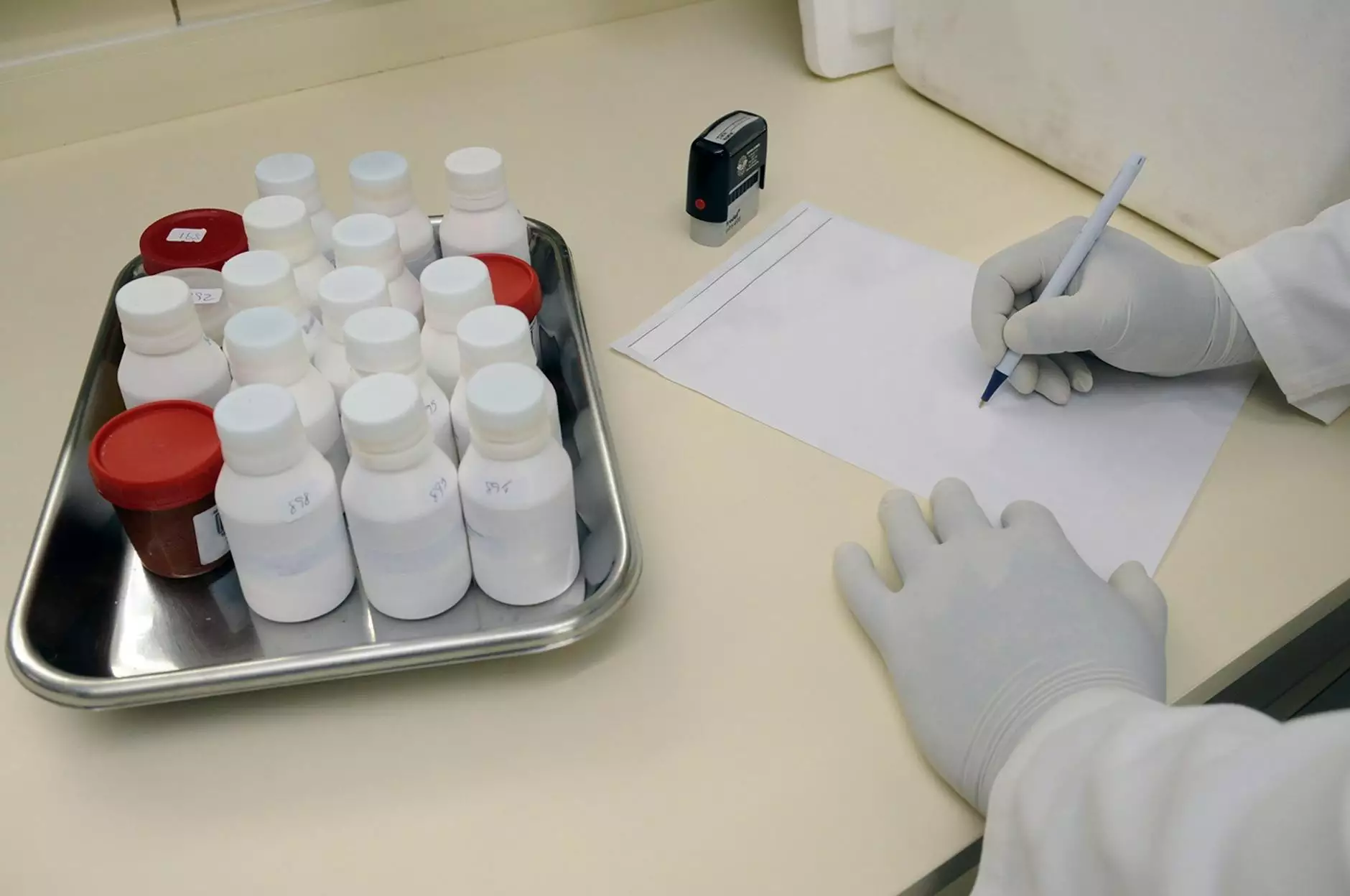CRM for Pharmaceutical Industry: Transforming Business Dynamics

In the fast-paced world of pharmaceuticals, maintaining a competitive edge is essential for success. One of the most effective ways to achieve this is through the implementation of a robust Customer Relationship Management (CRM) system. This technology has proven invaluable for pharmaceutical companies aiming to optimize their operations, enhance customer interactions, and ultimately drive sales.
Understanding the Importance of CRM in the Pharmaceutical Sector
The pharmaceutical industry is characterized by its complex regulatory landscape, fierce competition, and the necessity for maintaining strong relationships with various stakeholders, including healthcare professionals, patients, and regulatory authorities. A well-designed CRM system can help organizations manage these relationships effectively by providing a centralized platform for storing customer information, tracking interactions, and analyzing data to inform decision-making.
Key Benefits of CRM for Pharmaceutical Companies
- Improved Customer Relationships: By consolidating customer information and interaction history, pharmaceutical companies can provide personalized experiences to healthcare providers and patients.
- Efficient Sales Management: A CRM system enables sales teams to track leads, manage pipelines, and automate repetitive tasks, allowing them to focus on closing sales.
- Data-Driven Insights: Leveraging analytics tools within CRM systems allows companies to gain insights into customer behavior and market trends, informing product development and marketing strategies.
- Regulatory Compliance: CRM systems help pharmaceutical companies maintain compliance by tracking interactions and ensuring that all communications with healthcare professionals adhere to industry regulations.
- Streamlined Communication: Improved communication channels facilitate collaboration among sales, marketing, and customer service teams, promoting a cohesive approach to managing customer relationships.
Key Features of an Effective CRM for the Pharmaceutical Industry
When selecting a CRM system specifically designed for the pharmaceutical sector, several features should be prioritized to ensure that the chosen system meets unique industry requirements. Here are some must-have features:
1. Customizable Dashboards
Custom dashboards allow users to visualize data relevant to their roles. This feature ensures that sales reps can quickly assess performance metrics, outstanding tasks, and customer interactions all in one place.
2. Comprehensive Contact Management
A CRM must provide tools for organizing and managing a comprehensive database of contacts. This includes healthcare providers, patients, and internal stakeholders, allowing for easy search and retrieval of information.
3. Automated Communication Tools
Automation capabilities are crucial in maintaining consistent communication with clients. Tools can include automated email campaigns, reminders for follow-ups, and alerts for important milestones, significantly improving responsiveness.
4. Integration with Other Systems
The ability to integrate with existing systems such as ERP and marketing automation platforms is essential. This allows for seamless data exchange and enhances the effectiveness of marketing and sales strategies.
5. Analytics and Reporting Tools
Effective CRM solutions come equipped with analytics tools that allow companies to generate detailed reports on sales performance, customer engagement, and market trends, assisting in strategic planning.
Implementing CRM in the Pharmaceutical Industry
Successful implementation of a CRM system requires careful planning, training, and continuous evaluation. Below are essential steps companies should follow:
Step 1: Assess Your Business Needs
Start by identifying specific challenges your pharmaceutical business faces. Understanding your operational requirements will help shape the CRM features you prioritize.
Step 2: Choose the Right CRM Vendor
Research potential CRM providers who specialize in the pharmaceutical industry. Look for vendors with a proven track record, strong customer support, and customizable solutions.
Step 3: Train Your Teams
Proper training is essential for successful adoption. Ensure that your sales, marketing, and customer service teams are well-versed in how to utilize the CRM system effectively.
Step 4: Monitor and Adapt
After implementation, continuously monitor how the CRM is being used and gather feedback. Be prepared to make necessary adjustments to maximize its effectiveness.
Challenges in CRM Implementation for the Pharmaceutical Sector
While the benefits of implementing a CRM system are substantial, the pharmaceutical industry often faces unique challenges, including:
- Regulatory Restrictions: Navigating strict regulations surrounding pharmaceutical marketing and sales can complicate CRM use, necessitating that companies ensure compliance at all levels.
- Data Privacy Concerns: With a high volume of sensitive patient and provider information, it is crucial to prioritize data security to protect against breaches.
- Adoption Resistance: Employees may resist changes to established processes. Strong leadership and clear communication of benefits are vital to obtaining buy-in.
Best Practices for Maximizing CRM Effectiveness
To fully leverage the potential of a CRM system in the pharmaceutical industry, consider these best practices:
Emphasize User Adoption
Encourage user adoption by demonstrating the CRM’s value through training sessions and sharing success stories. Users who see real-world benefits are more likely to engage with the system effectively.
Regularly Update CRM Data
Maintaining accurate and up-to-date information is crucial. Schedule regular data cleaning and updates to ensure that your information remains reliable.
Use CRM Analytics to Drive Decisions
Utilize the analytics capabilities within your CRM to inform strategic decisions. Analyze customer behavior patterns and sales trends to optimize marketing and sales efforts.
Case Studies: Success Stories in CRM Implementation
Several pharmaceutical companies have seen profound transformations in their operations and customer interactions thanks to CRM systems. Here are a few notable examples:
Case Study 1: PharmaCorp
After implementing a tailored CRM solution, PharmaCorp improved their customer engagement strategies. By analyzing data from their CRM, they identified key trends and developed targeted marketing campaigns that led to a 30% increase in sales within a year.
Case Study 2: MedExcel
MedExcel streamlined their sales process by automating lead tracking and follow-ups with the help of a CRM system. As a result, their sales team reported a 40% reduction in administrative workload, allowing them to focus more on customer interactions.
The Future of CRM in the Pharmaceutical Industry
The landscape of the pharmaceutical industry is continuously evolving, with digital transformation becoming a priority. As technology progresses, the role of CRM is expected to expand. Here are some anticipated trends:
- Artificial Intelligence and Machine Learning: The incorporation of AI will drive more personalized customer interactions and predictive analytics, allowing companies to anticipate client needs.
- Mobile CRM Solutions: As remote work persists, mobile-friendly CRM solutions will become essential for sales representatives to access information on the go.
- Enhanced Data Security Measures: With increasing emphasis on data security, future CRM systems will integrate more robust security protocols to protect sensitive information.
Conclusion
The pharmaceutical industry stands to gain immensely from the adoption of CRM solutions designed to meet its unique challenges. By enhancing customer relationships, streamlining operations, and leveraging data-driven insights, CRM systems can significantly contribute to a company’s bottom line. As the industry continues to evolve, adopting a forward-thinking approach to CRM will be essential for any pharmaceutical organization aiming to succeed in a competitive market.
Discover how Veribase can help your pharmaceutical business implement a powerful CRM for sustainable growth and superior customer engagement.
crm for pharmaceutical industry








